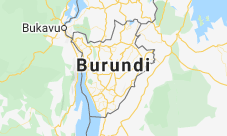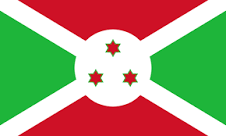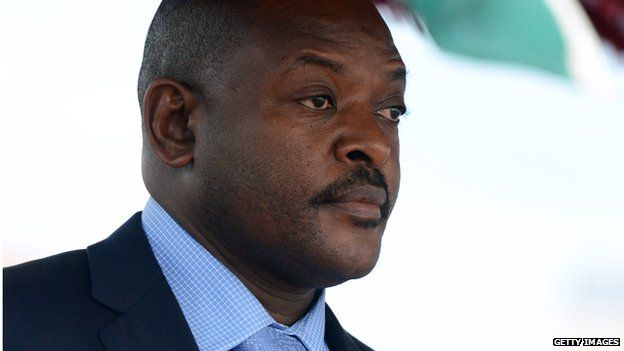
Burundi

Brief Overview
A landlocked State in Central Africa, Burundi is one of the most densely populated countries on the continent with 470 inhabitants per square kilometer. Its economy is heavily reliant on the agricultural sector, which, despite the paucity of arable land, employs 80% of the population. Poverty is mainly rural and overwhelmingly affects small farmers.
Political Context
Pierre Nkurunziza has been in power since 2005. Following a referendum, the country adopted a new constitution in June 2018 based on the 2000 Arusha Agreement for Peace and Reconciliation in Burundi. Among other things, it establishes a seven-year presidential term starting with the next general elections scheduled for May 2020. The outgoing president has announced that he will not be standing for re-election.
The country also has a National Assembly and a Senate whose members will be elected for five years. Legislative and commune-level elections will be held on the same date, while Senate elections will be held in July 2020.
Economic Overview

Republic of Burundi
Capital: Bujumbura
10.4m population – similar to Belgium
27,816 sq km area – similar to Haiti
50 years life expectancy for men
50 years life expectancy for women
$900 GDP per capita – similar to Liberia
UN, World Bank, CIA World Factbook

Social Context and Development Challenges
Most of the Burundian population lives in poverty, especially in rural areas. The level of food insecurity is almost twice as high as the average for sub-Saharan African countries, with about 1.77 million people in need of humanitarian assistance in 2019 according to the Humanitarian Response Plan (HRP), which is estimated at $106 million.
Climatic hazards and the resurgence of epidemics often aggravate this situation.
Moreover, agriculture, which is the main source of employment (nearly 80% of the population), does not generate enough income and contributes only 40% of GDP. Access to water and sanitation remains very low and less than 5% of the population has access to electricity (including 52.1% of urban households and 2% of rural households).
The country has made progress in slowing population growth, with a fertility rate that declined from 6.4 to 5.5 children per woman on average between 2010 and 2017.
Owing to its proximity to the Democratic Republic of Congo, Burundi is also exposed to the Ebola epidemic that has been affecting the country since June 2018 and has taken measures to prevent and control the disease, with the support of the World Bank, by setting up screening and treatment centers near borders.
Physical Contacts of the Presidency
Name of Minister:
Address:
Telephone:
Fax:
Physical Contacts of the Prime Minister’s Office
Name of Minister:
Address:
Telephone:
Fax:
Physical Contacts of the National Assembly
Name of Speaker of the House:
Address:
Telephone:
Fax:
Physical Contacts of the Chief Of State and Cabinet Ministers
Name of Minister:
Address:
Telephone:
Fax:
Physical Contacts of the Ministry of Interior
Name of Minister:
Address:
Telephone:
Fax
Physical Contacts of the Ministry of Justice
Name of Minister:
Address:
Telephone:
Fax:
Physical Contacts of the Ministry of Foreign Affairs
Name of Minister:
Address:
Telephone:
Fax:
Physical Contacts of the Ministry of Women’s Affairs
Name of Minister:
Address:
Telephone:
Fax:
Physical Contacts of the National Human Rights Commission
Name of Minister:
Address:
Telephone:
Fax:
Physical Contacts of the Police
Name of Inspector General:
Address:
Telephone:
Fax:
Physical Contacts of the Military
Name of Inspector General:
Address:
Telephone:
Fax:
Important Information of Key Human Rights Issues in Burundi
Number Prisons in Burundi
Number Prisoners in Burundi:
Secret Detention Centres:
Police Stations in Burundi
What are the current and ongoing human rights issues in Burundi?
(1) Freedom of the Press
(2) Human Rights Defenders Issues
(3) Impunity
African Union (AU)
Joined the OAU
Signed the Constitutive Act of The African Union on:
Ratified:Instrument Deposited:
Signed:
Ratified:
Instrument Deposited:
Signed:
Ratified:
Instrument Deposited:
Signed: –
Ratified: –
Instrument Deposited: –
4.Protocol on Amendments to the Protocol on the Statute of the African Court of Justice and Human Rights
Signed: –
Ratified: –
Instrument Deposited: –
Signed: –
Ratified: –
Instrument Deposited: –
Signed: –
Ratified: –
Instrument Deposited: –
Signed: –
Ratified: –
Instrument Deposited: –
Signed: –
Ratified: –
Instrument Deposited: –
Signed: –
Ratified: –
Instrument Deposited: –
Signed: –
Ratified: –
Instrument Deposited: –
Signed: –
Ratified: –
Instrument Deposited: –
Signed: –
Ratified: –
Instrument Deposited: –
Signed: –
Ratified: –
Instrument Deposited: –
Signed: –
Ratified: –
Instrument Deposited: –